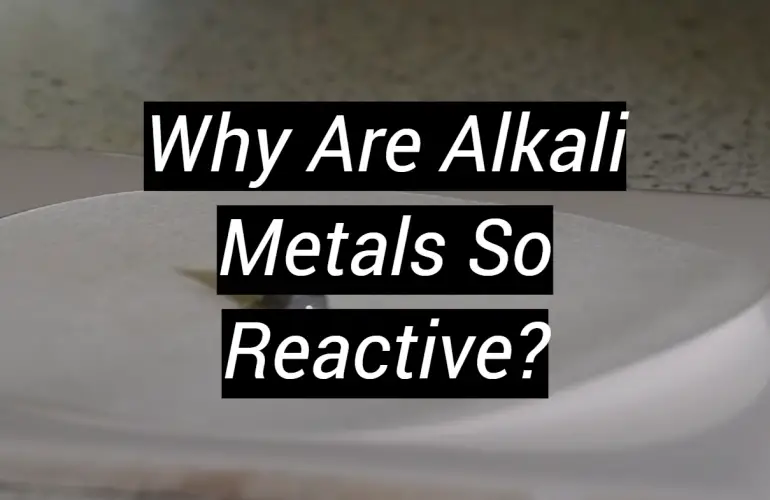Why Are Alkali Metals So Reactive?
Alkali metals are known for their reactivity, but why are they so reactive? In this blog post, we’ll explore the reasons behind the alkali metals’ reactivity, and how this affects their place in the periodic table. Today, let’s uncover the typical responses that alkali metals exhibit when exposed to certain conditions.. So if you’re wondering why these elements are so reactive, read on!
What Are Alkali Metals?
Group 1 of the periodic table (IA) holds an intriguing selection of elements known as alkali metals. They include lithium, sodium, potassium, rubidium, cesium, and francium. These metals are known for their low reactivity and high reactivity with water. Alkali metals possess several unique characteristics that set them apart from other elements on the periodic table.
Alkali metals have an advantage over other elements in the periodic table – they are softer and boast a remarkably lower melting point. Additionally, they tend to form strong hydroxides when reacting with oxygen or water. In addition to this characteristic, alkali metal compounds also usually form colorless solutions when dissolved in water. This is due to their ability to donate electrons and form strong covalent bonds.
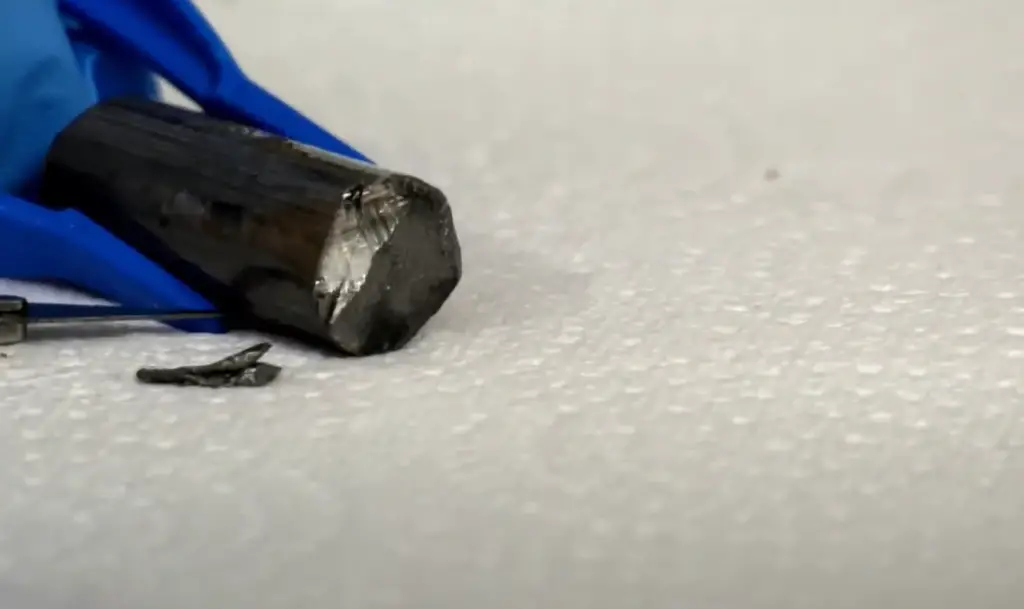
When exposed to air, alkali metals quickly oxidize, forming a white powdery substance called an oxide layer. This is why these metals must be handled with great care and stored in sealed containers that are not exposed to oxygen or water.
Properties Of The Alkali Metals
Boasting a soft, shining silver-white sheen, the alkali metals in column one of the periodicity table are stunningly reactive elements. Their melting and boiling points are exceptionally low, making them highly reactive when in the presence of air or water. Alkali metals also possess a range of unique chemical properties that make them useful for many industrial applications.
One key property of alkali metals is their high reactivity with oxygen and other elements. All alkali metals readily form compounds with oxygen, chlorine, and other nonmetals such as nitrogen and sulfur. This allows them to be used in processes such as metal plating, where they can act as catalysts in reactions involving these elements. Additionally, because they are so reactive, they are often used as reducing agents in chemical processes.
Alkali metals also have relatively low densities, making them lighter than most other metals. This property makes them useful for various applications where a lightweight material is desired, such as aircraft components or buoyancy aids. Additionally, they are highly malleable and ductile, meaning that they can be molded and shaped into different forms.
Finally, alkali metals tend to form strong bonds with other elements when combined in an ionic form. This makes them ideal for use in batteries, since their strong bonds allow the battery to store energy efficiently and effectively over long periods of time. In addition, they are often used in nuclear power plants due to their ability to absorb neutrons.
Overall, the properties of alkali metals make them a useful and versatile element with many industrial applications. From metal plating to nuclear power plants, their unique characteristics can be harnessed in a variety of ways to create products that are more efficient and effective than ever before. [2]
List Of All Alkali Metals
- Lithium (Li)
- Sodium (Na)
- Potassium (K)
- Rubidium (Rb)
- Cesium (Cs)
- Francium (Fr)
Why Are Alkali Metals So Reactive?
Alkali metals are one of the most reactive elements in the periodic table. This is due to their chemical structure, which leaves them with a single electron in their outermost shell that is not completely filled. Because of this, alkali metals have a strong tendency to gain electrons from other substances and form ionic bonds. This results in highly exothermic reactions that can be used for many different applications such as batteries and light production.
Additionally, alkali metals form alloys easily and often react violently when exposed to water or oxygen, making them dangerous to work with and store safely. Despite this, the reactivity of alkali metals makes them incredibly useful in a variety of industries.
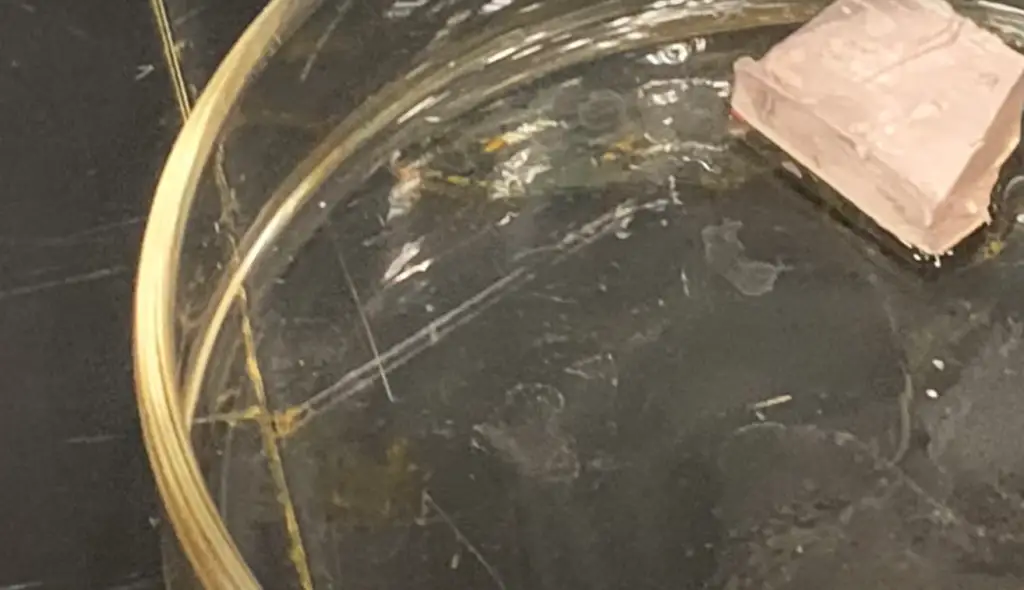
To put it succinctly, alkali metals are incredibly reactive due to their partially unfilled outer shells, thus allowing easy formation of ionic bonds. Their reactivity makes them useful in many applications, such as batteries and light production, but it can also make them dangerous if not handled with the utmost care. [3]
Common Reactions Of Alkali Metals With Water
Alkali metals are highly reactive elements, so when exposed to water they undergo a vigorous reaction. Generally, alkali metals form hydrogen gas and a metal hydroxide solution.
The same reaction happens with other alkali metals such as potassium, rubidium and cesium, forming the corresponding metal hydroxides.This reaction is very exothermic; that is to say it releases a lot of heat energy. In some cases this reaction can even be violent enough to cause an explosion! It’s important to understand the risks associated with these reactions before attempting them in a laboratory setting.
In general, any experiment involving alkali metals and water should be carried out with extreme caution. Careful monitoring of the reaction is also necessary to ensure safety. Additionally, protective equipment such as safety glasses, gloves and lab coats should be worn while performing these experiments.
Finally, all materials used during the experiment should be disposed of according to local regulations.
By understanding the potential risks involved in working with alkali metals and water, scientists can safely conduct experiments and explore their properties further. This knowledge can then be applied to a range of industries, making new breakthroughs possible! [4]
Why Do Alkali Metals Get Less Reactive?
Alkali metals are the group of elements that make up Group 1 of the Periodic Table and are characterized by their highly reactive nature. While they do tend to react vigorously with other elements and compounds, they also become less reactive as they move down the group. This decrease in reactivity is due to two factors – decreased nuclear charge and increased electron shielding.
The nucleus of an atom contains protons and neutrons, which together create a positive charge known as nuclear charge. As we move down Group 1, atomic numbers increase – so more protons are added to the nucleus. The additional protons shield each other from the outer shell electrons, resulting in a lower nuclear charge relative to previous members of the Group. This then results in the outer shell electrons becoming less attracted to the nucleus and so less reactive.
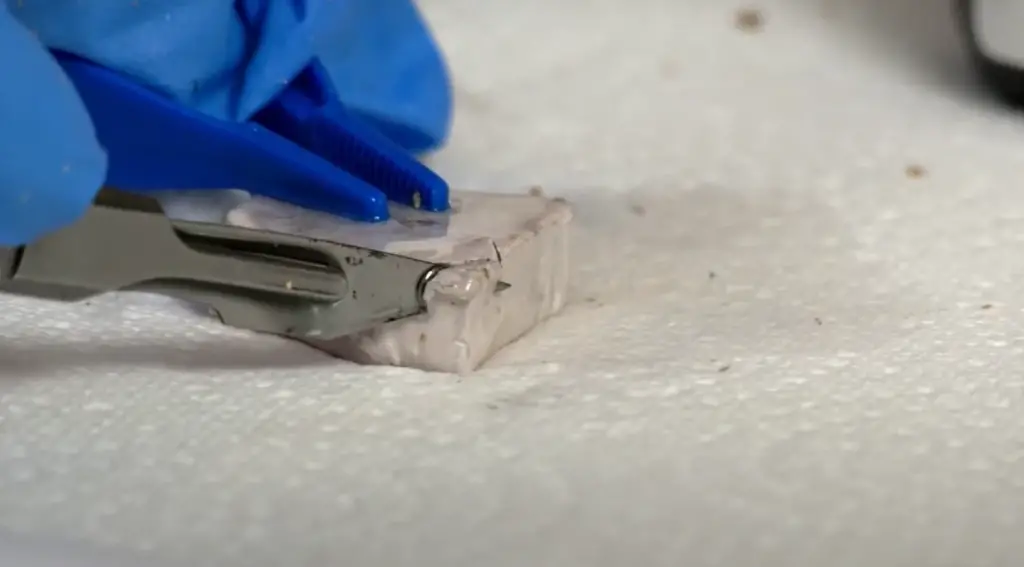
Additionally, as we move down Group 1, electrons are added to an atom’s outer shell. This extra shielding provided by the additional electrons further reduces reactivity at each level of the group due to a decrease in the attraction between outer shell electrons and oppositely charged nucleus ions.
These two factors combined together explain why alkali metals tend to become less reactive as we move down Group 1.
In summary, alkali metals become less reactive as we move down Group 1 due to decreased nuclear charge and increased electron shielding, which reduces the attraction between outer shell electrons and nucleus ions. This decrease in reactivity is what makes these metals so useful in everyday life as they are able to be handled with relative ease. [5]
Interesting Facts About The Alkali Metals
- The alkali metals are the most reactive of all metals.
- They form strong bases, and rapidly release hydrogen when reacted with water.
- When heated, they produce a brilliant white light called ‘alkaline glow’.
- Alkali metals have low melting points and boiling points due to their low atomic weights.
- Potassium is the most abundant alkali metal on Earth, making up about 0.2% of the Earth’s crust.
- Lithium is the least dense metal, making it ideal for use in batteries and other electronic applications.
- Sodium and potassium are essential elements for life and can be found in many foods we eat every day.
- Sodium and potassium react violently with water, so they must be stored in oil or other inert solvents.
- Alkali metals are often used as catalysts in chemical reactions.
- They also have uses in agriculture, medicine, and many other industries.
- Alkali metals are toxic if ingested, so care should be taken when handling them.
FAQ
Why are alkali metals considered highly reactive?
Alkali metals are the most reactive group of elements on the periodic table. This is because they have one valence electron in their outer shell, which makes them highly prone to losing that electron and forming a chemical bond with other elements. Loss of this single electron allows alkali metals to form strong bonds with nonmetal elements, making them highly reactive. Additionally, alkali metals have relatively low ionization energies and relatively large atomic radii. This means they more easily give up electrons than gain new ones, further increasing their reactivity.
What element characteristics make alkali metals so reactive?
Alkali metal atoms possess a single valence electron in their outermost shell. This makes them highly prone to forming chemical bonds with other elements and gives them a higher reactivity than other elements on the periodic table. Additionally, alkali metals have relatively low ionization energies and large atomic radii, which means they more easily give up electrons than gain new ones. This further increases their reactivity. As a result of these characteristics, alkali metals are some of the most reactive elements in the universe.
Why are alkali metals more reactive than transition metals?
Alkali metals are more reactive than transition metals because they have only one electron in their outermost shell. This single electron makes them very unstable, which is why they readily react with other elements or compounds. Alkali metals are also highly ionized and form strong bonds with other elements that can lead to a variety of reactions. Transition metals, on the other hand, generally have multiple electrons in their outer shells, making them less likely to undergo such reactions.
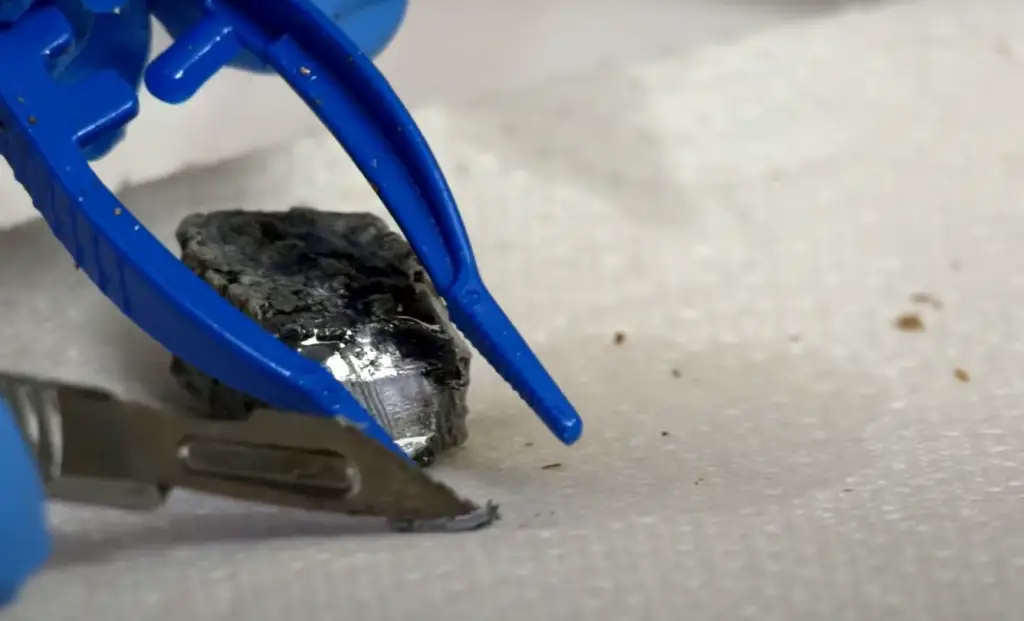
The higher energy levels of alkali metals make them much more reactive than transition metals and accounts for why they are so important in chemical processes. Additionally, the low electronegativity values of alkali metals mean that they can easily give up their lone electron without too much effort, which further helps to explain their high reactivity.
Why are they called alkali metals?
Alkali metals are called such because they have a high affinity for alkaline solutions when dissolved in water. This is due to the relatively low electronegativity of these elements, allowing them to interact easily with other molecules and ions in solution. The name “alkali” was derived from the Arabic word al-qalīy, which means “ashes.” As a result, it is used to refer to any substance that produces basic or alkaline solutions when reacted with acids. Ultimately, alkali metals are so reactive because of their single electron in their outermost shell and their low electronegativity values.
What are 5 characteristics of alkali metals?
- Alkali metals are soft, silvery-white metals that occur in nature as the elements of Group 1 on the Periodic Table.
- Alkali metals are highly reactive and can easily form compounds when exposed to air or water.
- They have low melting points and boiling points, so they usually exist in liquid form at room temperature.
- Alkali metals have just one valence electron, which makes them especially prone to oxidation and the formation of ionic bonds with other elements.
- These elements also have a great affinity for hydrogen and rapidly react with it to form alkaline compounds such as sodium hydroxide (NaOH).
Useful Video:Why alkali metals get more reactive down the group from www.ChemistryTuition.Net
Conclusion
In conclusion, alkali metals are extremely reactive due to their low ionization energy, high electron affinity and the fact that they form discrete ions in aqueous solutions. This is why they are so reactive with other elements – they readily accept or donate electrons to form compounds with much lower energies than the reactants had before. As a result of these properties, alkali metals have many uses in industry and everyday life as well as being valuable research tools in chemistry. Understanding how these properties affect alkali metal reactivity is essential for anyone working with them.
References:
- https://chem.libretexts.org/Bookshelves/
- https://chemistrytalk.org/alkali-metals-periodic-table/
- https://www.learner.org/series/chemistry-challenges-and-solutions/organizing-atoms-and-electrons-the-periodic-table/the-reactivity-of-alkali-metals-explained/
- https://byjus.com/question-answer/why-are-alkali-metals-highly-reactive-in-air-1/
- https://psiberg.com/why-are-alkali-metals-so-reactive/

